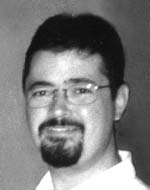Their eldest son, Sylvia and Baruch, was born in Hadera on August 20, 1968. Already in his youth he was evident in his talents and special personality. He began his studies at the Arlozorov State Elementary School in Hadera, where he continued to the Hadera High School. During his studies, Tzahi participated in enrichment classes for the Youth of Science, and studied piano for eight years. In the 10th grade as part of the “personal commitment”, Tzahi inaugurated a young boy from a family in distress who lived in the Naamat neighborhood in the city. Tzachi completed his high school studies in the physical-physical track in 1986, and in October of that year he enlisted in the IDF as part of the Academic Reserve, where he studied medicine at the Hadassah Ein Kerem University Hospital in Jerusalem, where he underwent basic training in 1987, Tzachi worked as a nurse in the intensive care unit at the hospital, when he managed to combine the hard work with the demanding studies, and after completing his academic studies, Tzachi underwent a residency in Carmel Medical Center in Haifa for one year. He returned to compulsory military service in July 1994 Zahi s medical officers course and was ordained as a battalion doctor spearhead battalion. In August 1994 he joined the Officers Training School Tzahi course 1, but eight weeks after breaking his left leg. During the recovery, in December 1994, a malignant tumor was discovered in his head. Tzachi underwent surgery and underwent radiation therapy, and in July 1995 he was discharged from military service. Despite the difficult illness, complicated treatments and walking difficulties caused by the illness, Tzachi continued to try and contribute his skills and medical training, and volunteered for work at Hillel Yaffe Medical Center in Hadera. In May 1997, Tzachi returned to military service as a volunteer. He was assigned to serve as a doctor in Camp 80. For this service, Tzachi received a certificate of appreciation from the base commander for his great contribution to the unit. In March 1998, after recovering from severe pneumonia, it was decided to transfer him to the position of “Assistant Medical Officer in the Northern Command” in order to prevent his exposure to contagious infectious diseases. As part of this role, Tzahi traveled almost daily to Haifa, and returned home at night to his home in Hadera. After a few months he was promoted to captain. In November 1998, his condition deteriorated and he was hospitalized at Hadassah Ein Kerem Hospital. Doctors’ attempts to stem the spread of the disease were unsuccessful. Tzachi died on December 24, 1998. He was laid to rest in the military cemetery in Hadera and was left behind by his parents, brother and sister, and in memory of Tzachi the family set a engraved plaque on the wall of the Great Synagogue in Hadera “After his death, Tzachi was praised and respected by a number of people who knew him closely and emphasized his lofty qualities and noble personality, who had outstanding talents and excelled in a group that was collected on the basis of excellence and excellence – medical students in academic reserve. Ability to learn and acquire the most impressive knowledge.Zahi was endowed with a quick understanding and depth of ability that enabled him to achieve achievements At the same time Tzahi was a gentle man, humble and modest, a noble man who never married anyone, did not succumb to the difficult illness and did not give up the possibility of practicing medicine and contributing to his ability and knowledge. “Tzahi, you taught us a great deal about courage, determination and heroism – not from the type taught in battle or in the medical books, we taught us determination in the struggle against the disease, the heroism of accepting the inevitable, the ability to enjoy what And the courage to choose how it will end. And we”Ehud Zamir, a doctor, a fellow of medical studies and of the medical corps, writes about him:” … I was surprised to discover within a short time that this quiet and minor man was actually a talented person. Most learned with me. Tzachi had an enormous amount of medical knowledge, which was extracted casually and effortlessly on almost every subject. Alongside this knowledge was medical logic and wisdom, that it took many years, if any, to reach them. And all this without a hint of arrogance, quietly, without pushing and without unnecessary words. His modesty was in stark contrast to his extraordinary skills. It was hard for me to understand how for six years he had managed to escape the attention of most of the class. He had so much to say, and he had to listen. I admired his ability as an officer, his navigational skills, no doubt superior to mine, and the source of his spirit in which he thought and drew conclusions. We became friends and I had no doubt that he was going to be a talented and successful officer. I hurt this cruel cutting and the terrible waste. In a condolence letter written by the unit commander of the bereaved family, he said: “… the tremendous desire to continue to function and contribute, despite the limitations and medical complications that were his, attests to his exceptional personality, quality and strength. This superior behavior served as a personal example to all of us. “
